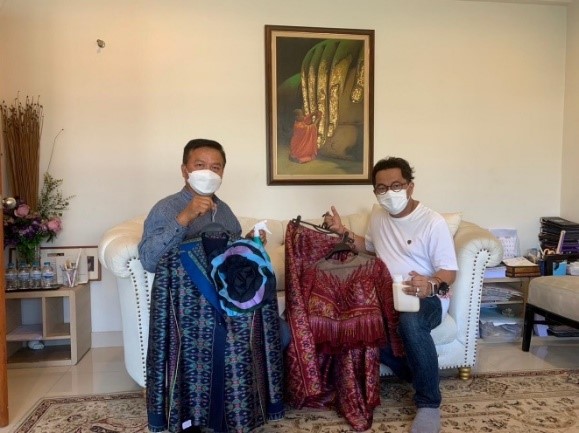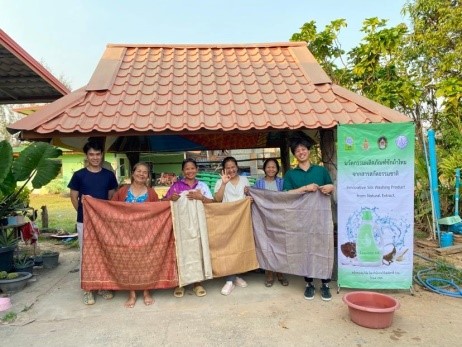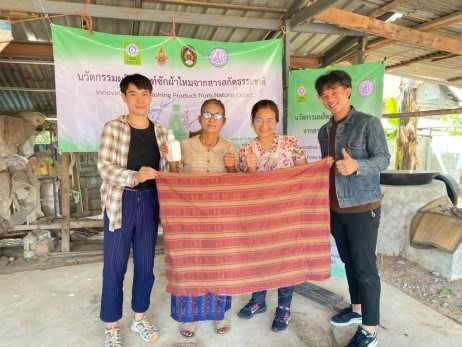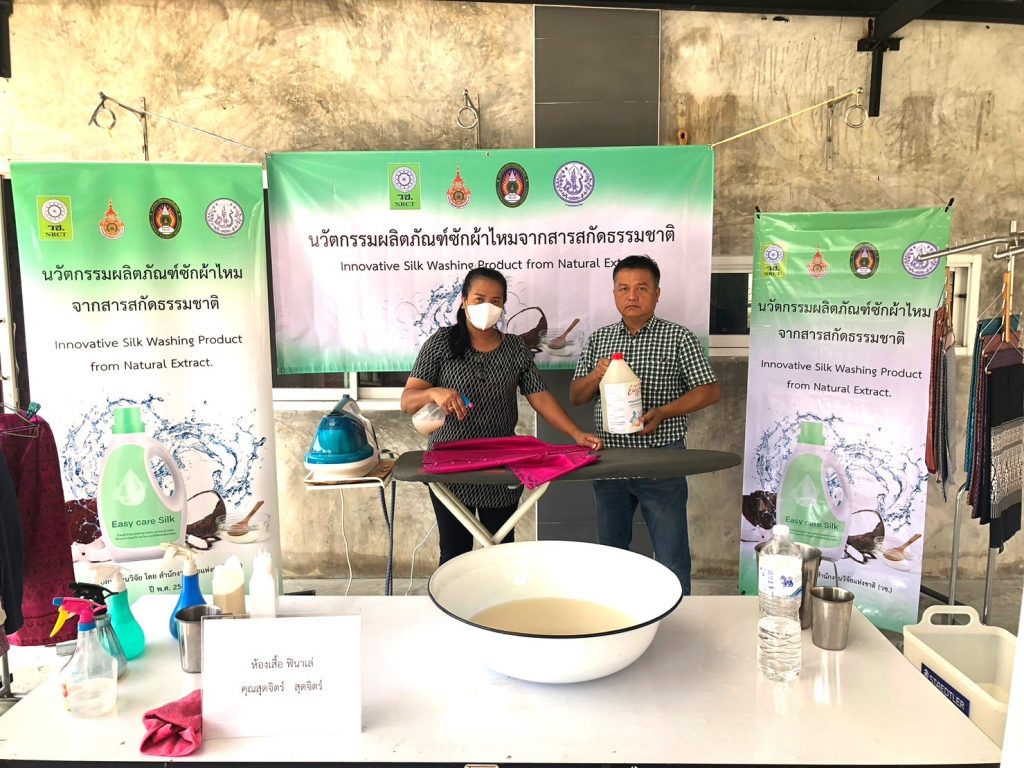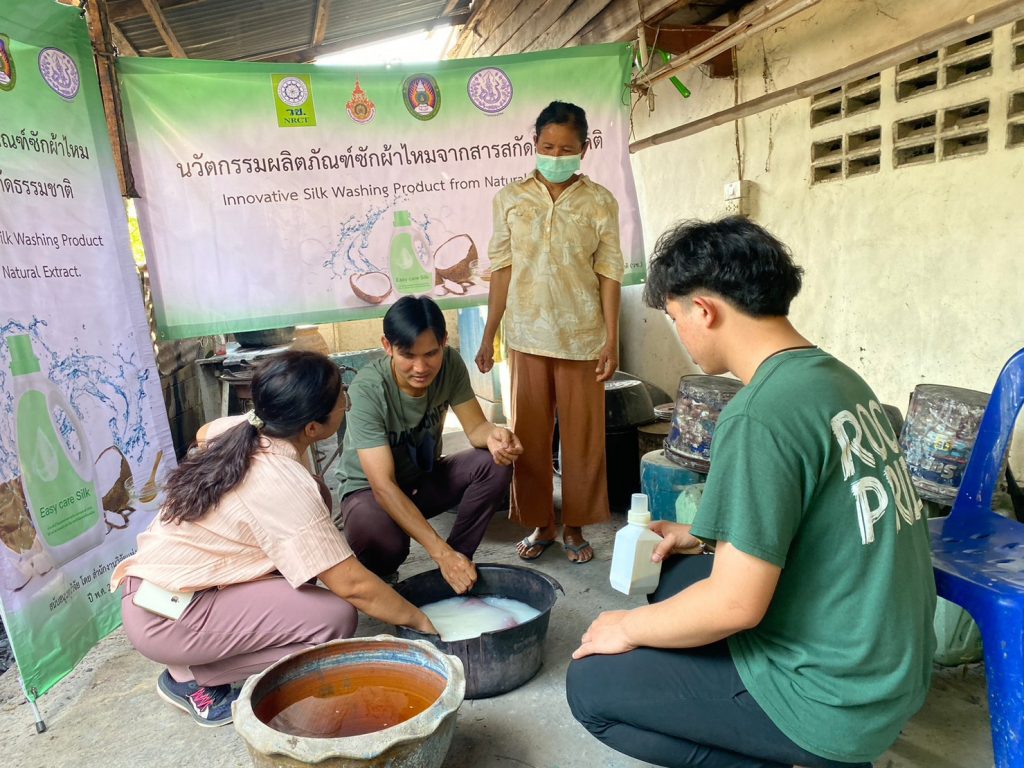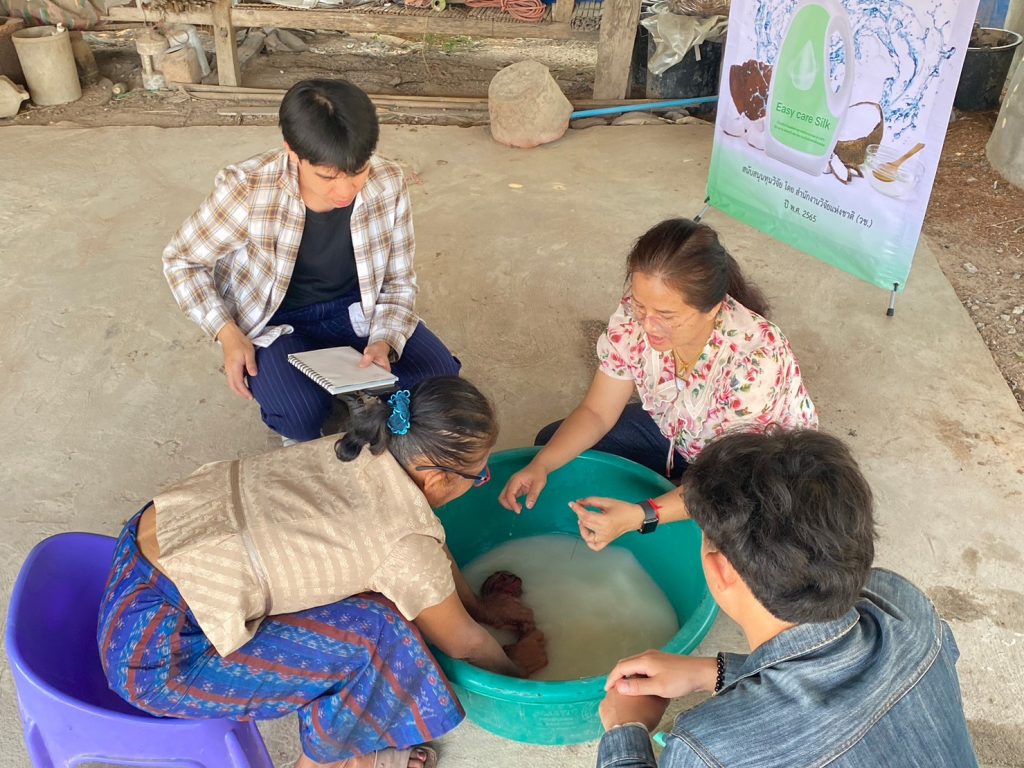
Silk fibers require special care as they are natural protein fibers, vulnerable to damage from UV light, leading to weakening and reduced luster, especially during the laundering process which may start from choosing suitable detergent, clothes wringing, and drying methods. Avoiding strong alkaline detergents is crucial as they can damage silk fibers, resulting in fabric stiffness. Additionally, another silk’s characteristic is poor crease recovery causes difficulty in ironing. As a result, most people prefer professional dry cleaning to home laundering. In response to these challenges, Assoc. Prof. Dr.Kittisak Ariyakuare and the research team of the Faculty of Textile Industries and Fashion Design, Rajamangala University of Technology Phra Nakhon, have developed a coconut silk liquid detergent using coconut water and 100% natural extracts which safe and eco-friendly. This innovation of silk liquid detergent was supported by funding from the National Research Council of Thailand (NRCT).
Assoc. Prof. Dr.Kittisak Ariyakuare said that from studying traditional methods of silk caring process, it was found that using coconut water for silk laundry causes fabric fragrance and softness. Therefore, this research aimed to study and develop natural extracts that affect silk laundering, including 1. coconut (sugar alcohol) which has the property of penetration to silk fibers, 2. cold-pressed coconut oil contains both saturated and unsaturated fatty acids and organic acids that can penetrate and catch protein fibers in silk, enhancing smoothness after washing with no damage to the original characteristics of the fabric, and 3. Ash lye water contains sodium hydroxide, which acts as a detergent to remove dirt and also helps enhance the silk fabric’s luster after washing. The researchers have developed four formulations of silk liquid detergents, including 1. 100% coconut water, 2. 100% ash lye water, 3. coconut water and ash lye water mixed in a ratio 1: 1, and 4. coconut water, coconut oil, and ash lye water mixed in the ratio 1: 1: 1. Additionally, the surfactant Dehyton DC-AS (Disodium Cocoamphodiacetate) was added into all four formulations. Subsequently, silk fabric will be tested for physical properties before and after washing with natural extracts. The test of physical properties of silk fabric includes crease recovery under AATCC 128 Standard, luster, softness, stiffness, and fabric drape by compared with the homemade silk and factorial silk made from plain weaving and figured weaving and tested for physical properties such as color, solution stability, and pH test. The result shows that the best silk liquid detergent formula is the fourth formula which was made from coconut water, coconut oil, and ash lye water mixed in the ratio 1: 1: 1.
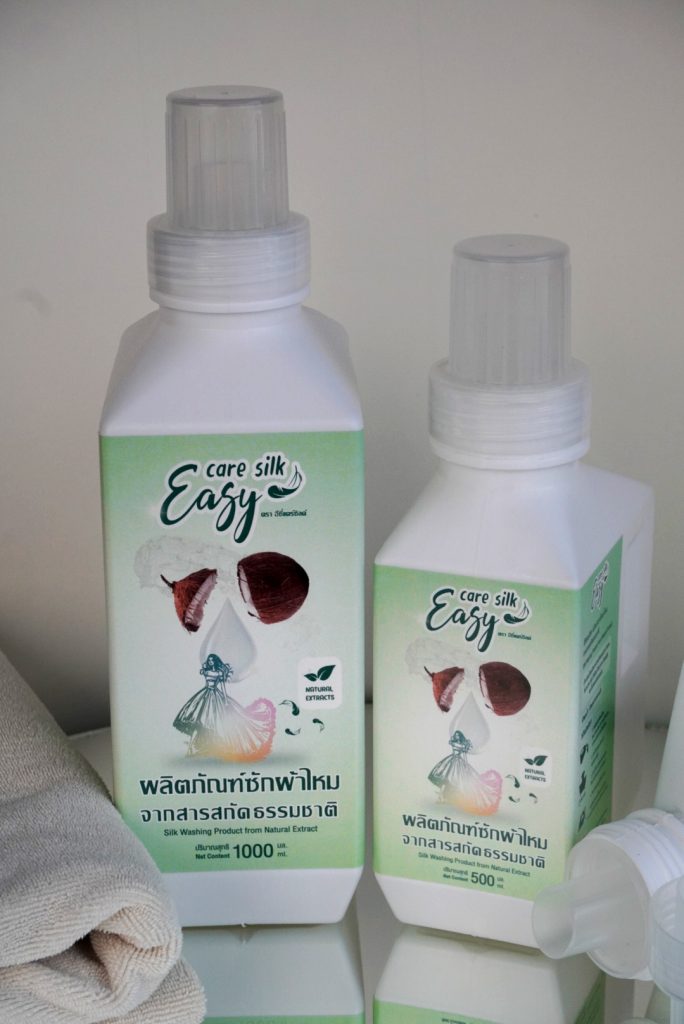
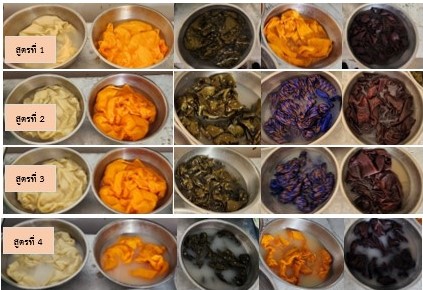
‘We have also tested the fourth formula of silk liquid detergent by the observation and satisfaction survey with the sample group from 4 Regions of Thailand which are 2 groups from the Northern region, 5 groups from the Northeastern region, 2 groups from the Central region, and 1 group from the Southern region, totaling 10 groups from 9 provinces including Lampang, Uttaradit, Nong Bua Lamphu, Udon Thani, Kalasin, Maha Sarakham, Sisaket, Nakhon Si Thammarat, and Bangkok. These sample groups are highly satisfied with the product due to ease of use, gentleness, smoothness, and ease of ironing (with an average of 5.00), highly satisfied with easy to rinse-off, no residue on the fabric (with an average of 4.90), and high satisfied from stains removing (with an average of 4.50). For user experience, the sample group felt highly satisfied that the product is gentle with no irritations and allergies to the skin, and eco-friendly product (with an average of 5.00). For marketing promotion and product strategies analysis, the sample group is highly satisfied with their packaging as they are easy to keep and highly durable packaging (with an average of 4.90), highly satisfied with its beautiful, suitable, and attractive packaging design (with an average of 4.80), highly satisfied with its beautiful product color (with an average of 4.70), and high satisfied with its scent (with an average of 4.40). The sample group also recommended that the product should be suitable for washing other types of fabrics such as silk, linen, hemp fabric, and pineapple fibers, including developing its design to respond to customers’ usage such as laundry gel balls, capsules, or other shape for various usage.’
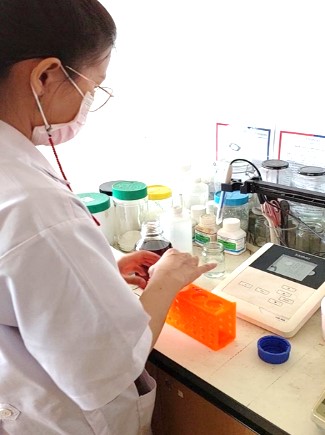
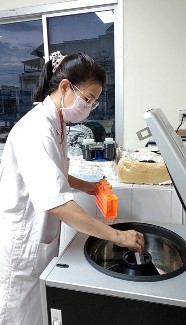
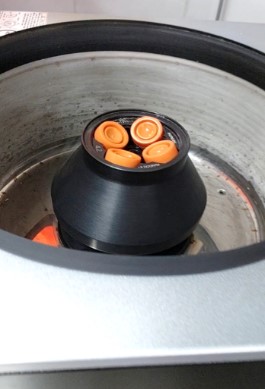
‘If we can reduce the process of washing or complicated fabric care by using technology, research, and innovation to adapt with Thai silk, it would promote the use of Thai silk, including Thai craftsmanship and wisdom to be outstanding and expand to various Thai silk costumes with easily to wash and meet the demand of current customers. Moreover, it also helps Thai silk products to be another commercial product which can preserve and promote Thai silk to be widespread in the nation.’ Dr. Kittisak adds more.
For those interested, please contact via LINE ID: Dr.moo or Tel no. 083 788 9569
